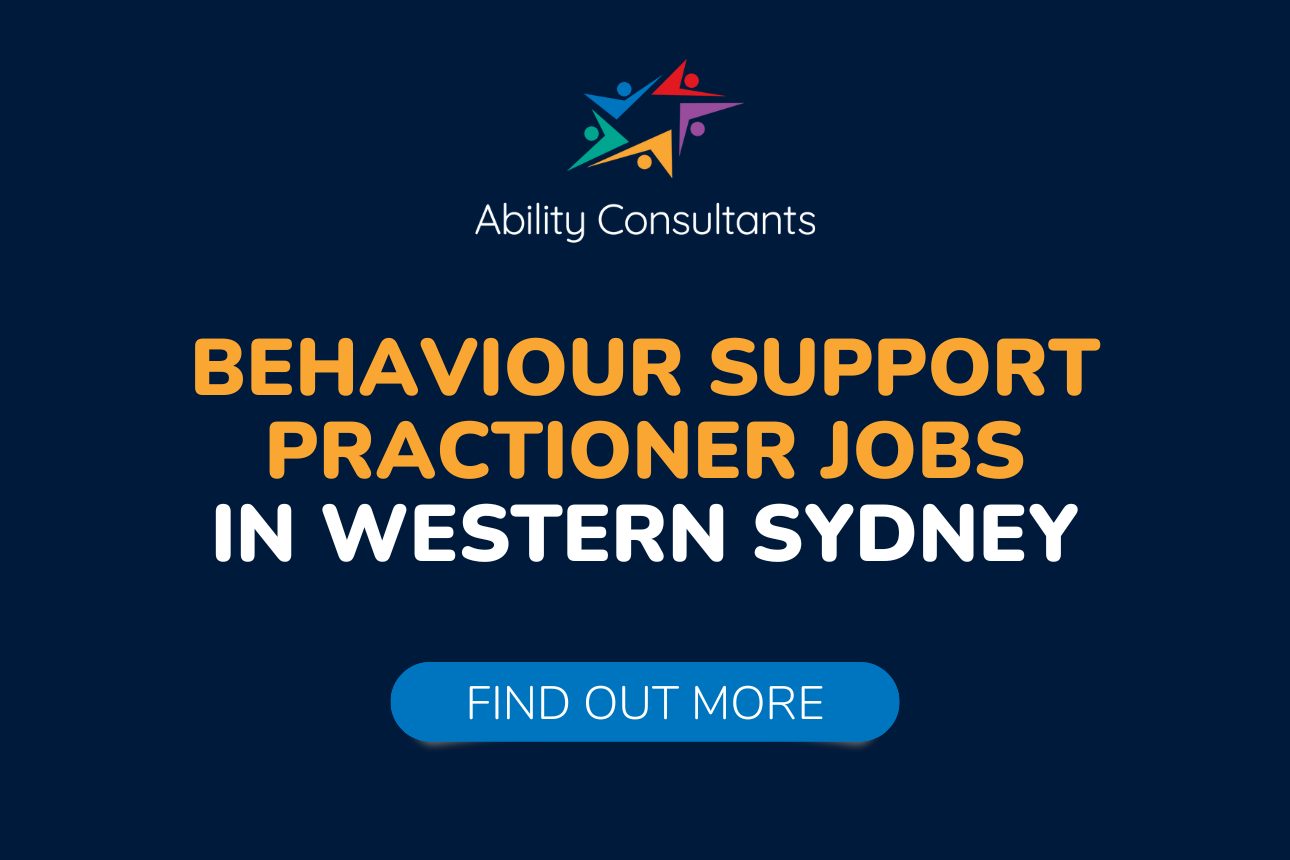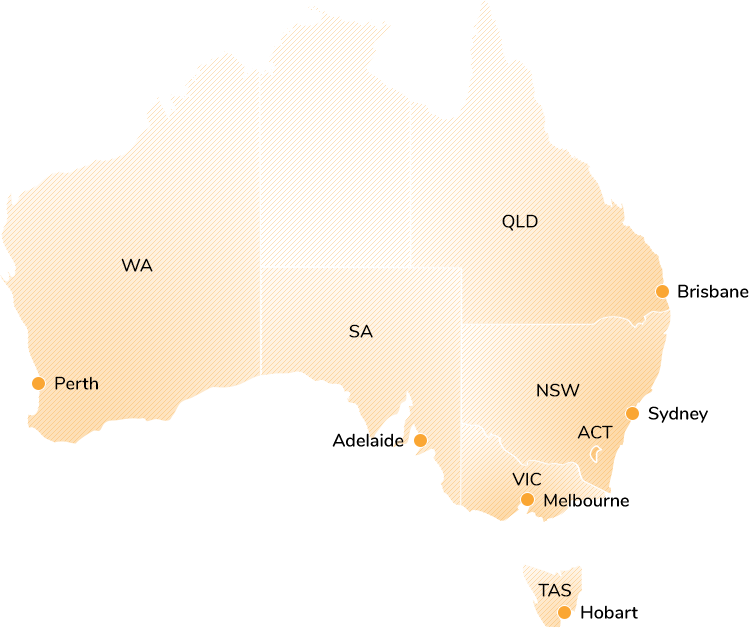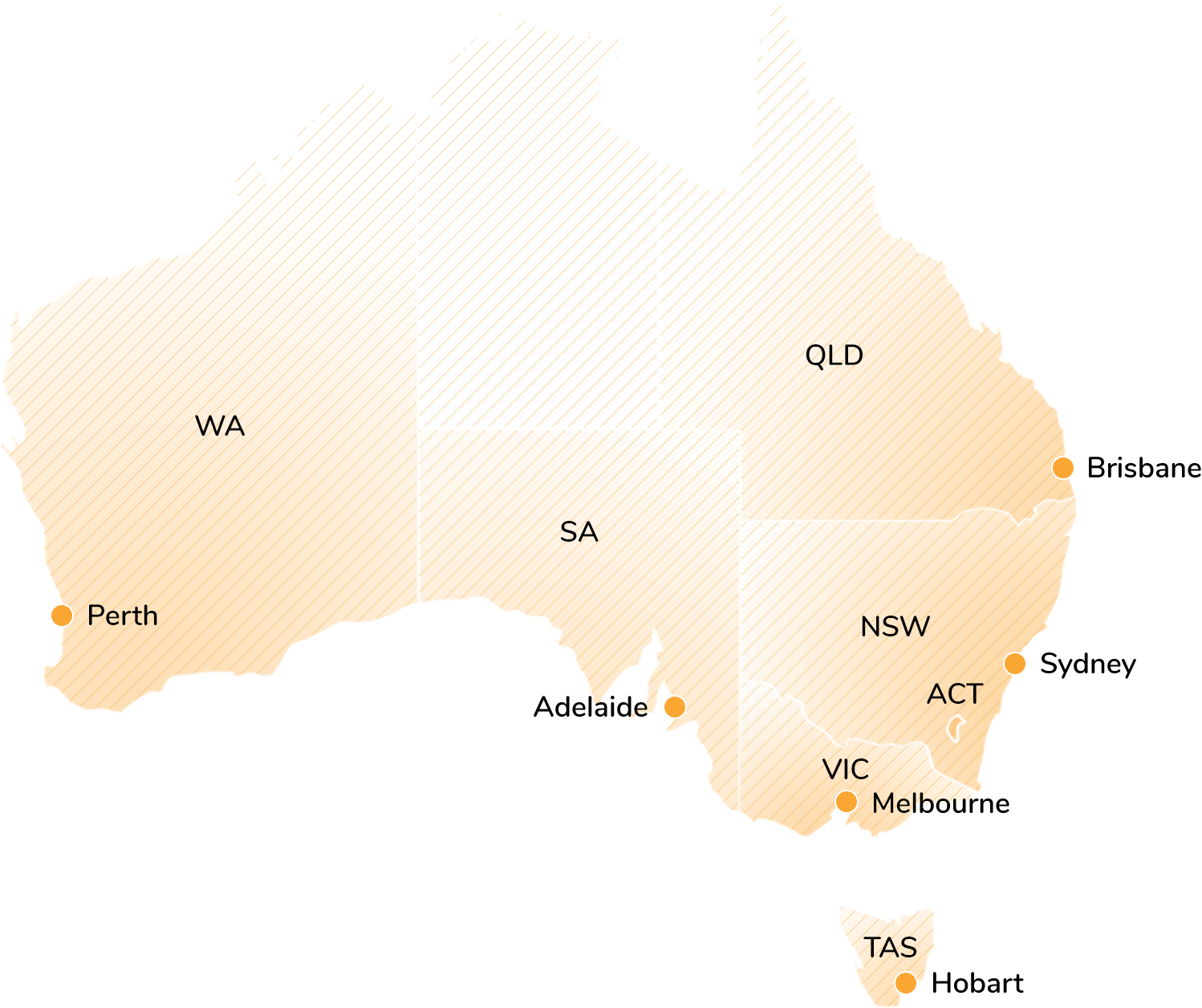Find Positive Behaviour Support in Western Sydney for NDIS participants

We support NDIS participants in Western Sydney through easy access to Positive Behaviour Support. Our behaviour support practitioners travel to you, whether you’re in Parramatta, Blacktown, Penrith, north-west or south-west Sydney.
What is Positive Behaviour Support?
Positive Behaviour Support (PBS) transforms a person’s quality of life by building new support strategies, skills and behaviours to meet their needs and goals. PBS is always person-centred — this means your PBS practitioner will actively seek your participation throughout your behaviour support.
Here’s a helpful video where Belinda explains Positive Behaviour Support:
Who can benefit from Positive Behaviour Support in Western Sydney?
We support NDIS participants with diverse disabilities such as autism, intellectual disability, physical disability, anxiety disorders, trauma, personality disorders and acquired brain injuries.
Positive Behaviour Support can improve a person’s quality of life in a way that aligns with their personal goals. This might include being able to engage in a meaningful way at home, school or in the community. Below, we’ll share how Positive Behaviour Support can help as well as some examples of what this might look like.
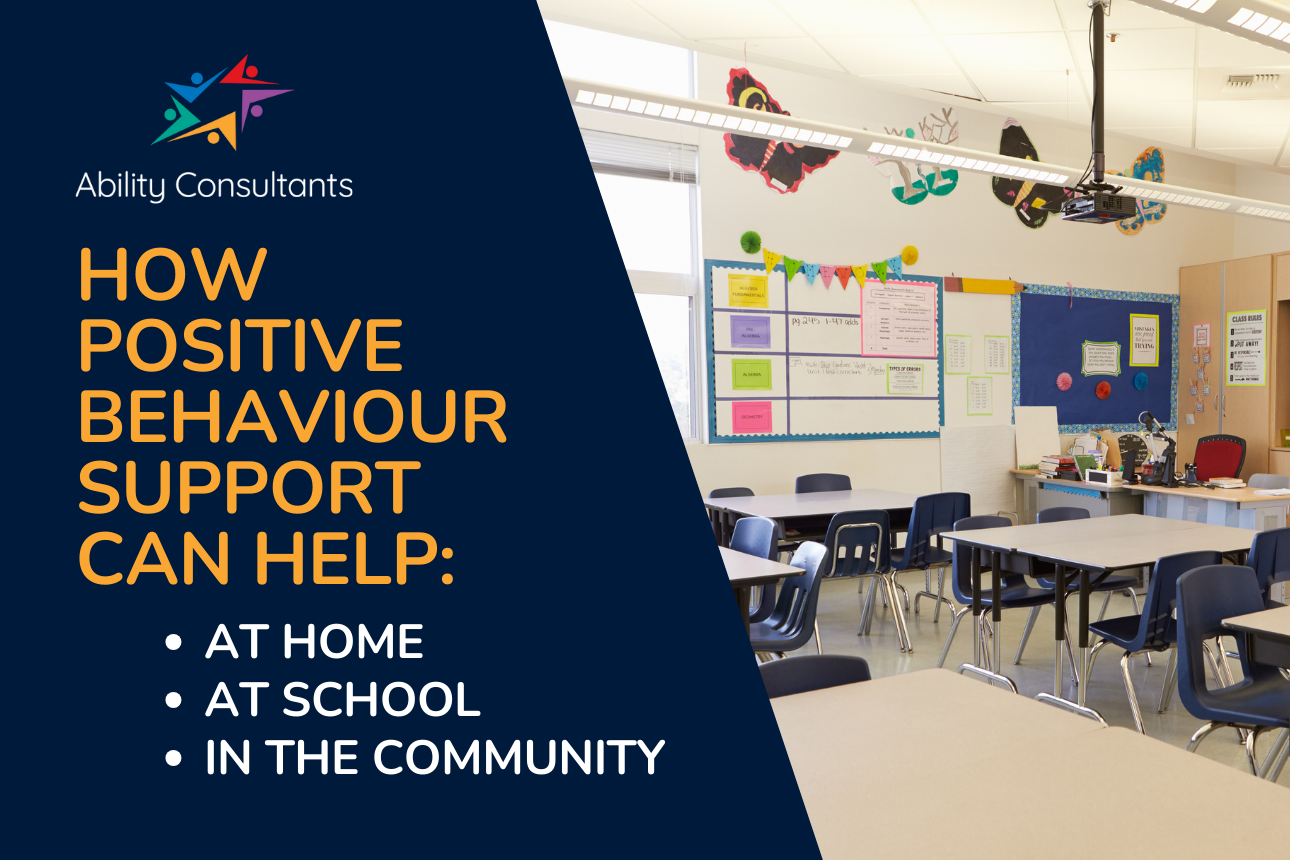
How Positive Behaviour Support can help
Positive Behaviour Support and home life
Positive Behaviour Support can improve a person’s quality of life in their home environment. For example, if a person on the autism spectrum displays sporadic shower refusal, their behaviour support practitioner will seek to identify what they are trying to communicate through their refusal.
Through conversations with the person and by collecting information over time, their behaviour support practitioner might identify that the person is refusing to shower when the bathroom window is open, due to the noise of nearby traffic.
Their PBS practitioner might suggest environmental strategies such as ensuring the window is closed before they enter the bathroom, teaching the person how to close the window and showing their carer how to communicate that the window has been closed.
Behaviour support practitioners also support individuals as they transition to new home and living environments, such as Supported Independent Living (SIL), Specialist Disability Accommodation (SDA), health and judicial environments and ongoing support in aged care.
For example, if a person with treatment-resistant schizophrenia is transitioning from long-term forensic mental health care to community living, their behaviour support practitioner will support them through the transition process, conduct risk assessments, assess their support needs, identify any barriers, and work towards achieving their goals.
Positive Behaviour Support and school participation
Behaviours of concern may create challenges for a child or adolescent attending school. In this example, a child with disability displays physical aggression towards other children and staff, but only in the afternoon.
The role of their behaviour support practitioner is to identify the reason/s for the child’s behaviour and identify strategies to support this child.
Their behaviour support practitioner will work with them, their classroom teacher and other relevant professionals to create their behaviour support plan and monitor the plan’s implementation.
In this example, let’s assume that the behaviour support practitioner has identified that excessive light in the classroom is causing the child significant discomfort. Environmental strategies in their behaviour support plan might include moving the child’s desk to a different part of the classroom, closing the classroom blinds and dimming classroom lights after lunch. Communication strategies in their behaviour support plan might include the introduction of relevant key word signs or images on their communication board, and staff might be upskilled to recognise these signs.

Positive Behaviour Support and community participation
Individuals can find freedom and social connection through community access and participation. If a person with a disability engages in behaviours of concern when accessing (or attempting to access) the community, their behaviour support practitioner can help identify why these behaviours are occurring.
For example, if a person enjoys hiking, but refuses to travel in a vehicle to their favourite hiking track, their behaviour support practitioner might identify that the person experiences significant discomfort in the heat. They may suggest multiple strategies such as parking the vehicle in the shade, starting the vehicle early and turning on the air conditioner, and/or ensuring the person with disability has access to a cold drink throughout the drive.
We recognise that every individual and situation is unique and that the reasons behind behaviours of concern can be complex and challenging to identify. This is where behaviour support practitioners can help.

Where we provide Positive Behaviour Support in Western Sydney
We support NDIS participants throughout Western Sydney, from Parramatta through to Blacktown and Penrith. We also support NDIS participants in Rouse Hill, Quakers Hill, Schofield, Box Hill, Riverstone, Grantham Farm, Londonderry, Castlereagh, Kingswood, St Marys, Mt Druitt, Seven Hills and Westmead.
Our behaviour support practitioners in Western Sydney travel to a place that is convenient for you, such as home, school, SIL, SDA, hospital, inpatient mental health facilities or correctional centres.
Our PBS practitioners engage with you in a variety of ways, including in-person support, phone calls, video calls, and email. We can arrange an interpreter if needed — please let us know if you need an interpreter, we are more than happy to arrange this.
How to get started with Positive Behaviour Support in Western Sydney

If you’re an NDIS participant in Western Sydney, please feel welcome to make a referral for Positive Behaviour Support anytime.
Anyone can make a referral, including NDIS participants, family members, Support Coordinators, Local Area Coordinators, medical and allied health practitioners.
Frequently Asked Questions about Positive Behaviour Support in Western Sydney
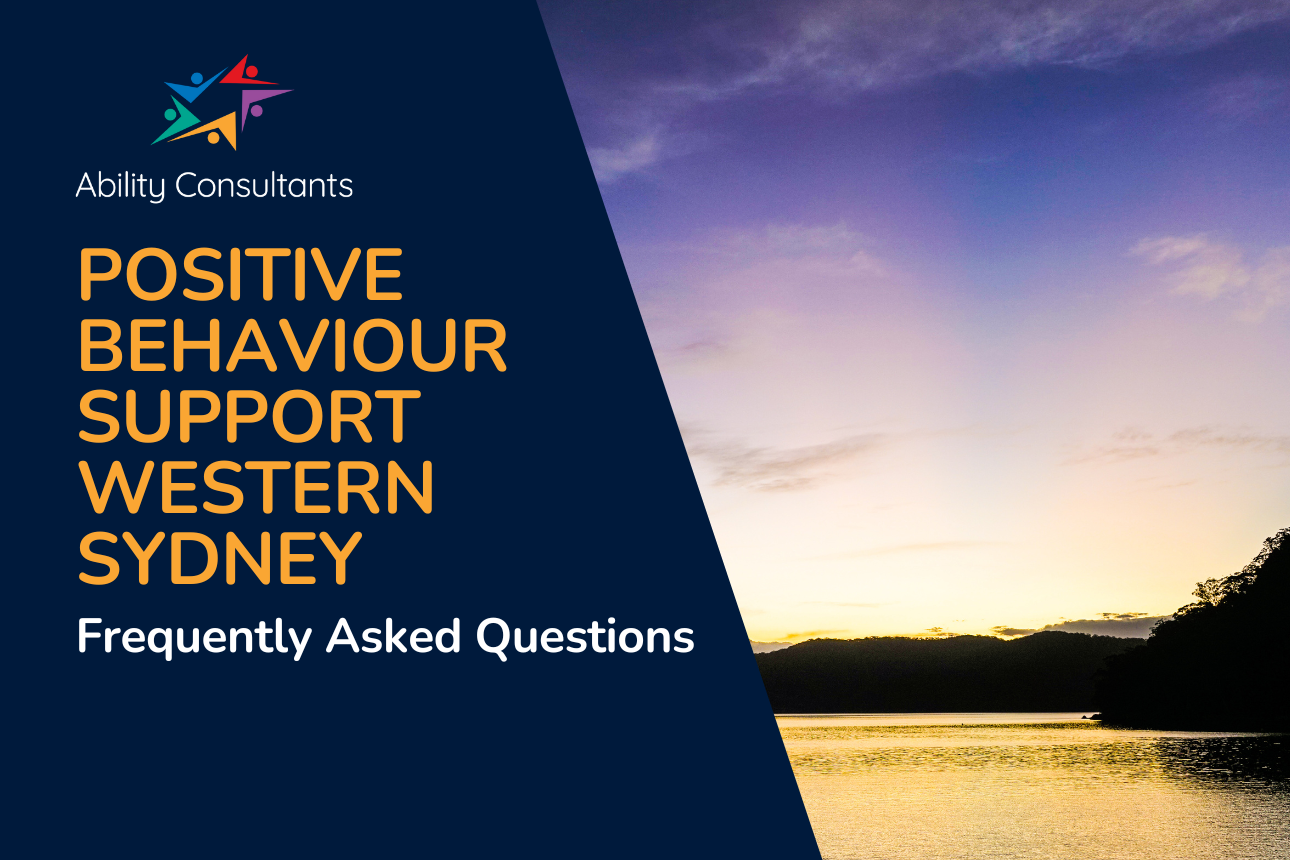
What is the current wait time for Positive Behaviour Support in Western Sydney? Currently, we have immediate capacity in some parts of Western Sydney, however our wait times change frequently. Wait times for PBS will vary depending on your needs, diagnoses and the PBS practitioners located near you. Our average wait time can be found on our website.
Where is your behaviour support clinic in Western Sydney? We don’t have a physical clinic in Western Sydney, or anywhere in Australia. Our team of over 100 behaviour support practitioners works remotely. We travel to you, saving you time and energy.
Who are your behaviour support practitioners in Western Sydney? We have quite a few behaviour support practitioners based in Western Sydney. Once you have been allocated your behaviour support practitioner, you can find out more about your PBS practitioner here on our website.
Behaviour support practitioner jobs in Western Sydney
If you live in Western Sydney and you’re interested in joining our team as a behaviour support practitioner, please feel welcome to contact Jane at [email protected]. We also encourage you to visit our website where you can find more information about careers in Positive Behaviour Support.



